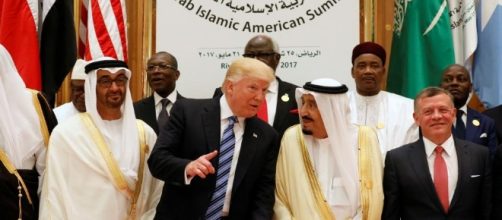US President Donald Trump and Saudi Arabia’s newly crowned prince, who is the next in line in Saudi hierarchy, shares belligerent view of Iran. However, there is a risk of tension and escalation of the already fragile region in a more confrontational approach.
It is clear that Iran will respond to a more aggressive approach by the US and its main Sunni Muslim-Arab ally in a confrontation. Iran and Saudi Arabia are embroiled in a regional struggle for political and religious influence.
The newly crowned prince
On Wednesday, Saudi King, Salman, crowned his son Mohammed as the next in line to succeed him on the throne.
King Salman is grooming his son for a possible take over when he retires from his 31-year-old reign.
Prince Mohammed Bin Salman, who is widely known as “MBS,” has ruled out the option of dialogue with chief rival Iran, and promised to defend his kingdom from what he described as Tehran’s moves to rule the Muslim world.
President Trump and Mohammed Bin Salman pointed out the importance of tackling Iran’s act of destabilizing the region when both men met at the White House in March. But former US administration officials said the effects of such action could be counterproductive.
Dangers of a possible confrontation in the Gulf
According to a former US government expert on Middle East affairs, the most dangerous aspect of the Trump administration was for the US to be cajoled into the Muslim Sunni-Shi’ite rift going on across the Middle East.
The danger could pose a serious threat, especially, President Trump’s delegation of responsibility for defense and military decisions to the Pentagon, he said.
The official added that if the Trump administration accords US military commanders greater authority to confront Iran’s air and provocative naval acts in the Arabian Gulf, the already tense situation could go out of control.
US-led forces vs. Iranian-backed forces
US-led coalition forces are a bit close to Iranian-led forces supporting the regime of President Bashar al-Assad of Syria. Just this month, US military aircraft has downed two Iranian drones, said to be threatening US-led coalition forces in southeastern Syria. The US also backs the Saudi-led coalition troops in Yemen by supplying logistics and assisting with intelligence.
According to the vice president for policy International Crisis Group Rob Malley, the likelihood of a US-led confrontation with Iran to diffuse in the Gulf is slim, at a time of enormous distrust.


